Blog
TFCC Injuries and Tears in the Wrist: Healing with SoftWave Tissue Regeneration Technology at Disc Centers of America – Cleveland
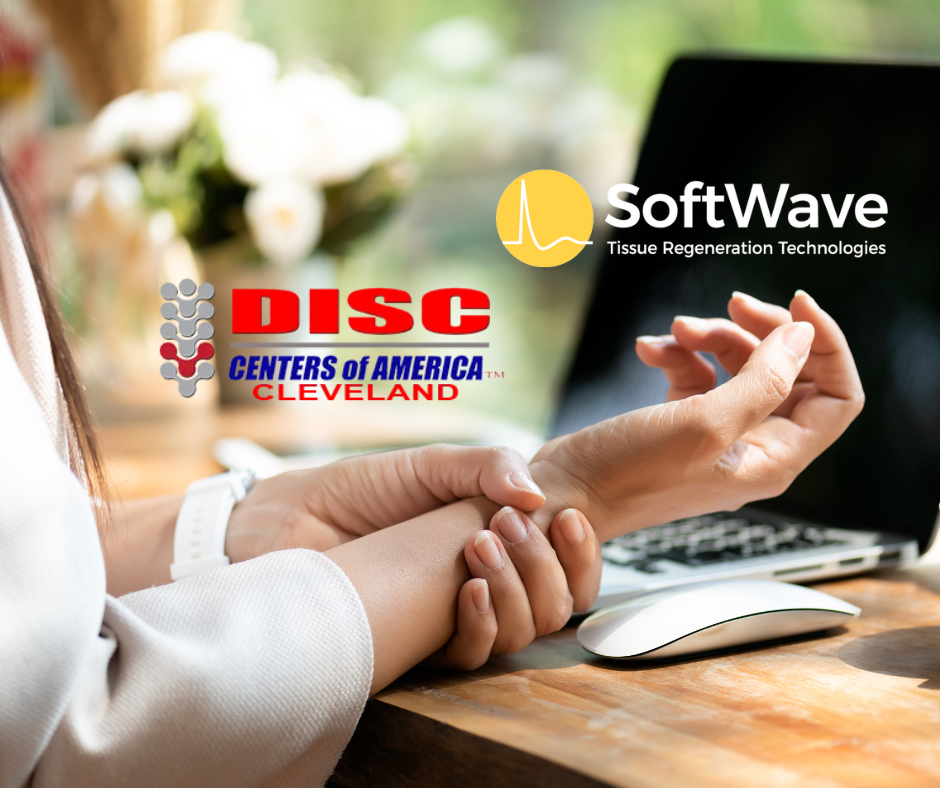
Triangular Fibrocartilage Complex (TFCC) injuries are a common source of wrist pain, especially in athletes or individuals who use their wrists for repetitive motions. These injuries can cause pain, instability, and limited range of motion, making daily activities and sports difficult. At Disc Centers of America – Cleveland, Dr. Roger Huang offers SoftWave Tissue Regeneration Technology (TRT) as a non-invasive, drug-free solution to heal TFCC injuries and tears naturally. This advanced therapy promotes healing at the cellular level, reduces pain, and restores mobility without the need for surgery or injections.
What is a TFCC Injury or Tear?
The Triangular Fibrocartilage Complex (TFCC) is a group of ligaments and cartilage located on the ulnar side of the wrist (the side of the wrist near the pinky). It acts as a stabilizer for the wrist joint, particularly during movements like twisting, gripping, or weight-bearing.
Types of TFCC Injuries
- Traumatic Tears: These are caused by acute injuries, such as falling onto an outstretched hand or twisting the wrist forcefully.
- Degenerative Tears: These occur over time due to wear and tear, often associated with aging or repetitive wrist use.
Symptoms of a TFCC Injury or Tear
Common symptoms of TFCC injuries include:
- Pain on the ulnar side of the wrist
- Swelling and tenderness in the wrist
- Clicking or popping sounds during wrist movements
- Instability or a feeling that the wrist is "giving out"
- Difficulty with gripping or rotating the wrist
- Pain that worsens with twisting motions, such as turning a doorknob
What Causes TFCC Injuries?
Several factors can contribute to TFCC injuries or tears:
- Trauma: A sudden fall, direct blow to the wrist, or high-impact activity can tear the TFCC.
- Repetitive Motion: Activities involving repetitive wrist movements, such as racquet sports, golf, or weightlifting, can strain the TFCC.
- Degeneration: Over time, the TFCC can weaken due to aging or chronic overuse, leading to degenerative tears.
- Structural Issues: Anatomical variations, such as a longer-than-average ulnar bone, can place additional stress on the TFCC.
Traditional Treatment Options for TFCC Injuries
Traditional treatments for TFCC injuries typically focus on managing symptoms and stabilizing the wrist. Common approaches include:
- Rest and Immobilization: Splints or braces are often used to limit wrist movement and reduce strain on the TFCC.
- Anti-Inflammatory Medications: Nonsteroidal anti-inflammatory drugs (NSAIDs) can reduce pain and swelling temporarily.
- Corticosteroid Injections: Steroid injections may provide temporary relief but don’t promote healing and can have side effects with repeated use.
- Surgery: Severe TFCC tears may require surgical repair, but this involves risks such as infection, scarring, and prolonged recovery times.
While these treatments may provide short-term relief, they often fail to address the root cause of the injury or promote long-term healing.
How SoftWave Therapy Heals TFCC Injuries and Tears
SoftWave Tissue Regeneration Technology (TRT) is a revolutionary therapy that uses acoustic waves to stimulate the body’s natural healing processes. Unlike traditional treatments, SoftWave Therapy promotes tissue regeneration and reduces pain by addressing the underlying cause of TFCC injuries.
The Science Behind SoftWave Therapy
SoftWave Therapy works through a process called mechanotransduction, which converts mechanical signals into biochemical responses. This process activates healing at the cellular level by:
- Stimulating Stem Cells: SoftWave Therapy activates resident stem cells, which are responsible for repairing and regenerating damaged tissues, including cartilage, ligaments, and soft tissue in the wrist.
- Reducing Inflammation: The therapy modulates inflammation, decreasing swelling and pain in the TFCC.
- Improving Blood Flow: SoftWave promotes angiogenesis, or the formation of new blood vessels, ensuring that oxygen and nutrients are delivered to the injured area for faster recovery.
Benefits of SoftWave Therapy for TFCC Injuries
SoftWave Therapy offers several unique benefits for patients suffering from TFCC injuries or tears:
1. Non-Invasive Healing
SoftWave Therapy is a completely non-invasive treatment that doesn’t involve surgery, needles, or downtime. Patients can return to their daily activities immediately after treatment.
2. Long-Term Pain Relief
Unlike temporary solutions like medications or injections, SoftWave Therapy addresses the root cause of pain, providing sustained relief by promoting tissue repair.
3. Promotes Natural Regeneration
SoftWave Therapy activates the body’s natural healing processes, encouraging the repair of ligaments, cartilage, and soft tissues in the TFCC.
4. Improves Mobility and Function
By reducing inflammation and repairing damaged tissues, SoftWave Therapy restores range of motion and improves wrist stability, allowing patients to regain full function.
5. Avoids Surgery
Many patients with TFCC injuries can avoid the risks and recovery time associated with surgery by choosing SoftWave Therapy as a safe, effective alternative.
Why Choose SoftWave Therapy for TFCC Injuries?
At Disc Centers of America – Cleveland, Dr. Roger Huang has helped numerous patients recover from TFCC injuries using SoftWave Therapy. Here’s why patients prefer this advanced treatment:
- Safe for All Patients: SoftWave Therapy is non-invasive and suitable for individuals of all ages and activity levels.
- Trusted by Experts: SoftWave Therapy is used by leading healthcare providers and prestigious clinics for its proven ability to promote healing and pain relief.
- Customizable Care: Dr. Roger tailors each SoftWave Therapy session to meet your specific needs, ensuring the best possible outcomes.
Schedule Your SoftWave Therapy Consultation Today!
If you’re suffering from TFCC injuries or tears and want to explore natural, non-invasive options for pain relief and recovery, SoftWave Therapy may be the solution you’ve been searching for. Schedule an appointment with Dr. Roger Huang and his expert team today at Disc Centers of America – Cleveland to start your journey toward lasting relief and wrist healing.
Visit us at Disc Centers of America – Cleveland for more information or request an appointment here.
- Cleveland Office: 2794 Som Center Road, Willoughby Hills, OH 44094 | Phone: 440-714-7723
- Ashtabula Office: 2709 Lake Ave, Ashtabula, OH 44004 | Phone: 440-998-2200
Let SoftWave Therapy help you heal your TFCC injury, regain mobility, and get back to living pain-free!
‹ Back



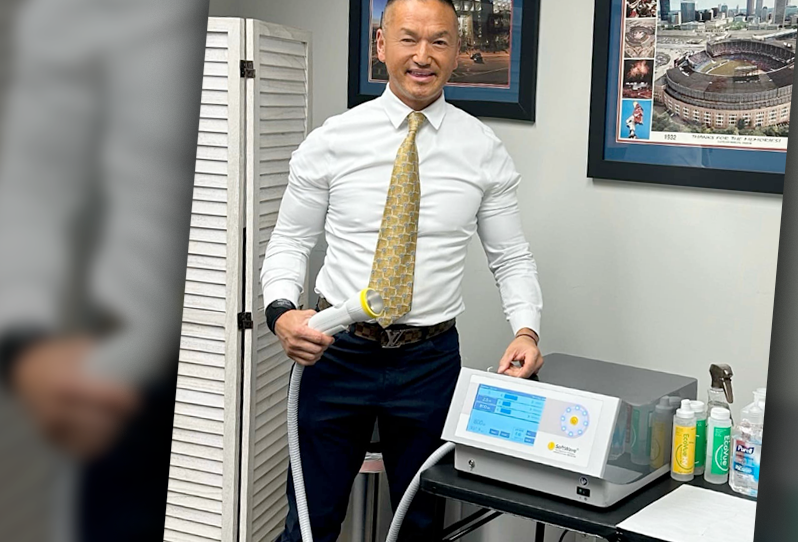
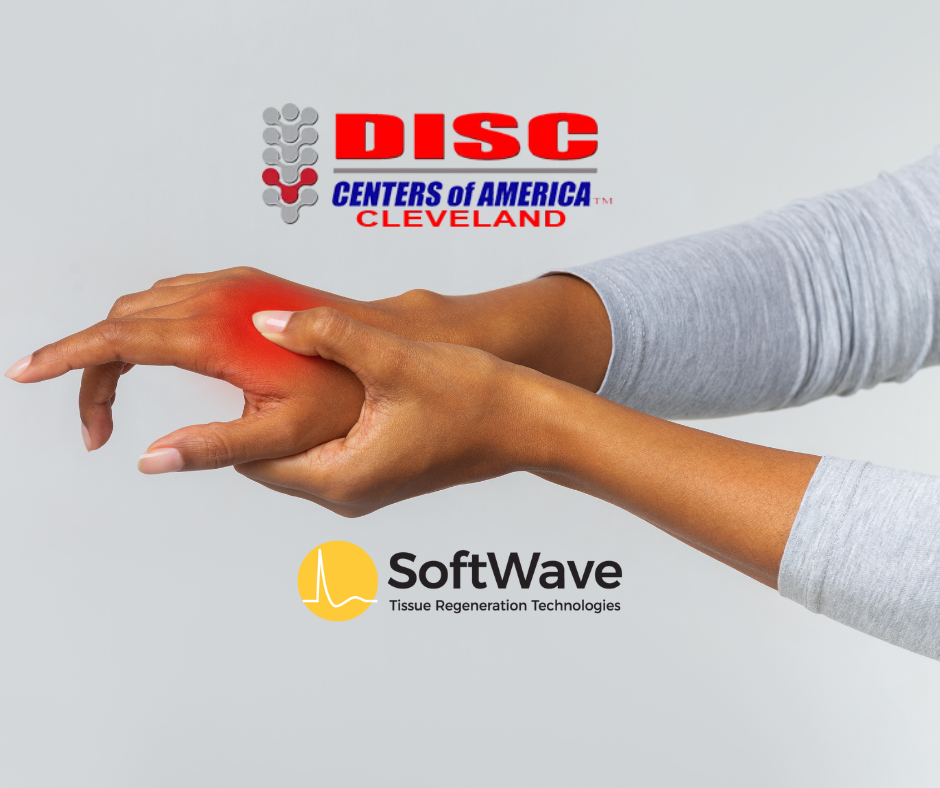
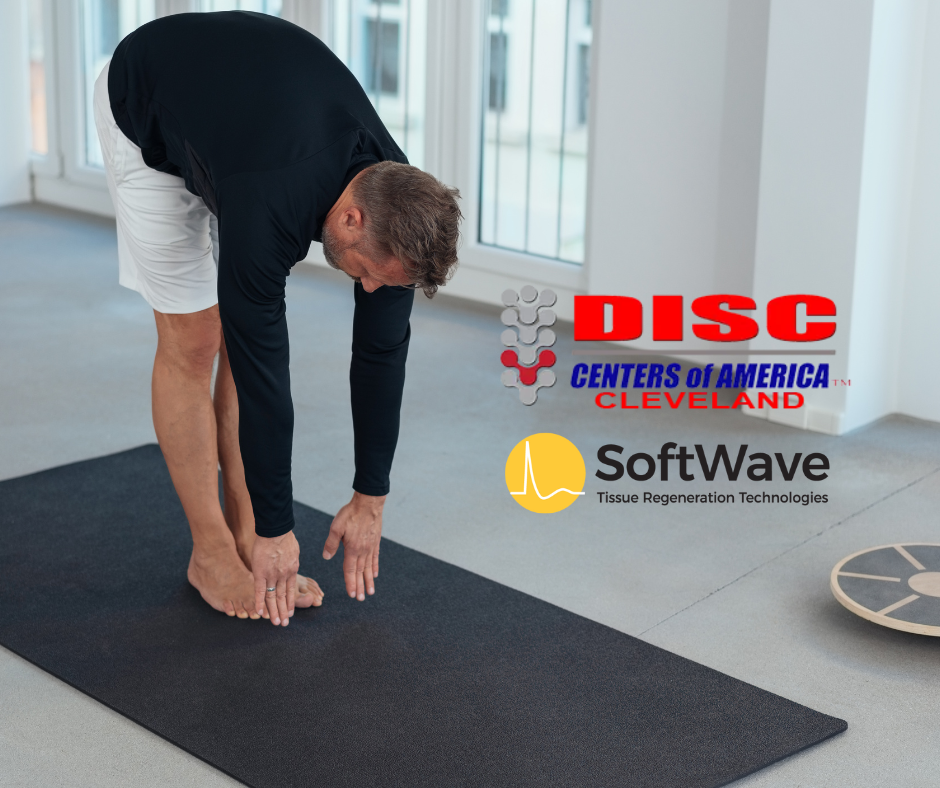

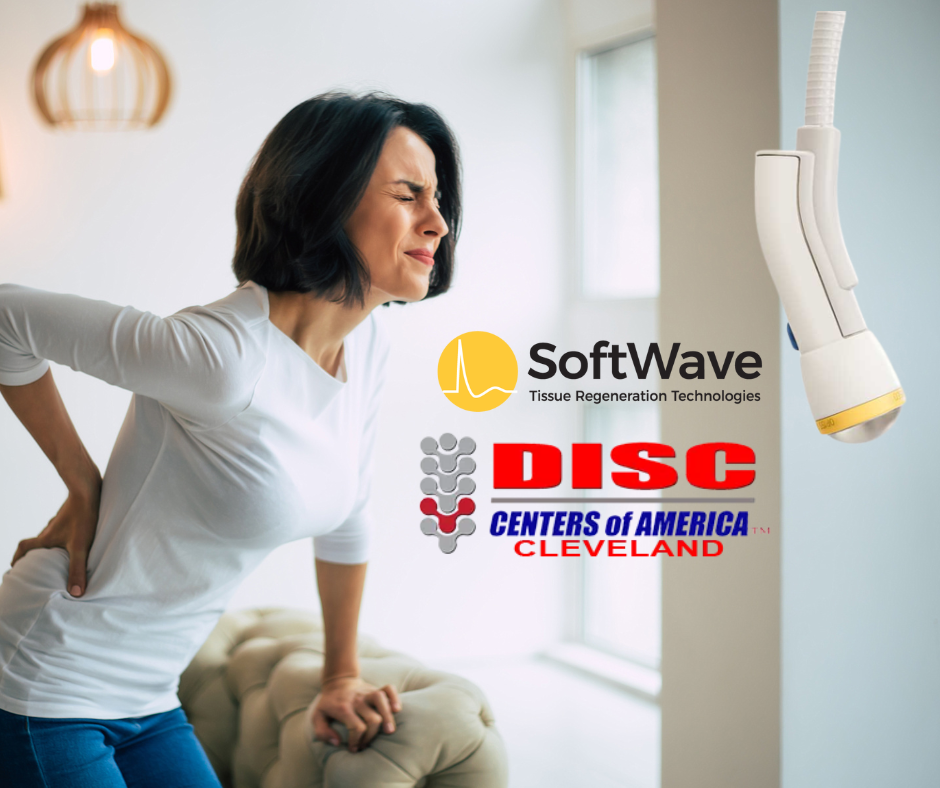

 2794 Som Center Road
2794 Som Center Road
